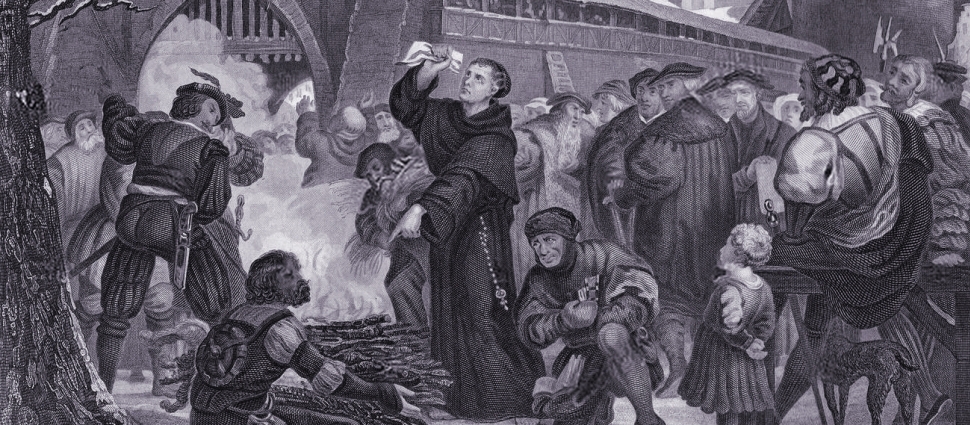May 19, 2020

Luke 15:11-32
And he said, “There was a man who had two sons. And the younger of them said to his father, ‘Father, give me the share of property that is coming to me.’ And he divided his property between them. Not many days later, the younger son gathered all he had and took a journey into a far country, and there he squandered his property in reckless living. And when he had spent everything, a severe famine arose in that country, and he began to be in need. So he went and hired himself out to one of the citizens of that country, who sent him into his fields to feed pigs. And he was longing to be fed with the pods that the pigs ate, and no one gave him anything.
“But when he came to himself, he said, ‘How many of my father's hired servants have more than enough bread, but I perish here with hunger! I will arise and go to my father, and I will say to him, “Father, I have sinned against heaven and before you. I am no longer worthy to be called your son. Treat me as one of your hired servants.”’ And he arose and came to his father. But while he was still a long way off, his father saw him and felt compassion, and ran and embraced him and kissed him. And the son said to him, ‘Father, I have sinned against heaven and before you. I am no longer worthy to be called your son.’ But the father said to his servants, ‘Bring quickly the best robe, and put it on him, and put a ring on his hand, and shoes on his feet. And bring the fattened calf and kill it, and let us eat and celebrate. For this my son was dead, and is alive again; he was lost, and is found.’ And they began to celebrate.
“Now his older son was in the field, and as he came and drew near to the house, he heard music and dancing. And he called one of the servants and asked what these things meant. And he said to him, ‘Your brother has come, and your father has killed the fattened calf, because he has received him back safe and sound.’ But he was angry and refused to go in. His father came out and entreated him, but he answered his father, ‘Look, these many years I have served you, and I never disobeyed your command, yet you never gave me a young goat, that I might celebrate with my friends. But when this son of yours came, who has devoured your property with prostitutes, you killed the fattened calf for him!’ And he said to him, ‘Son, you are always with me, and all that is mine is yours. It was fitting to celebrate and be glad, for this your brother was dead, and is alive; he was lost, and is found.’”
“Because God is self-existent, his love has no beginning; because he is eternal, his love can have no end; because he is infinite it has no limit; because he is holy, it is the quintessence of all spotless purity; because he is immense, his love is an incomprehensibly vast, bottomless, shoreless sea” (A.W. Tozer).
The Parable of the Loving Father is the third of three parables Jesus employed to explain his attitude toward “tax-collectors and sinners” (15:1-3). All three parables portray the central character as seeking after that which has been lost and rejoicing at its return. Traditionally it has been called the Parable of the Prodigal Son. Prodigal means someone who is recklessly wasteful.
The prodigal son plays an obviously indispensable role in the parable. Nevertheless, it is the father whose pardoning love welcomes back the sinful son who stands at the center of Jesus’ story. The parable is meant to explain and justify God’s attitude toward sinners. It also serves, as Leon Morris points out, to prove that “those who reject repentant sinners are out of line with the Father’s will.”
The younger son corresponds to those who were outcasts among the Jews: tax collectors and sinners. The older brother corresponds to the scribes and Pharisees. Both are presented as sinners. The younger brother sins through sensual license and materialism. The older brother’s sin is self-righteousness and jealousy. As readers, we are invited to consider which brother best suits our own sinful tendencies.
Towering at the center of the parable is the father whose love extends equally to both his sons: the wasteful worldling and the smug rule keeper. It must be noted that the father’s celebratory welcome to the younger son is contingent upon the prodigal’s repentance. Likewise, the father’s entreaty to his older son is meant to woo him to repentance for the sins to which he remains blind. The responsible older son must understand, as must we all, that he is as much in need of God’s grace as his foolish brother.
Followers of Jesus must see that the prodigals of the world are merely sinners of a different sort. The well behaved need the redeeming love of the Father as desperately as the world’s prodigals. How comforting it is to know that when we sin we have an Advocate with the Father who intercedes for us and makes the way for our return (1 John 2:1).
How deep the Father’s love for us
How vast beyond all measure
That he would send his only Son
To make a wretch his treasure




